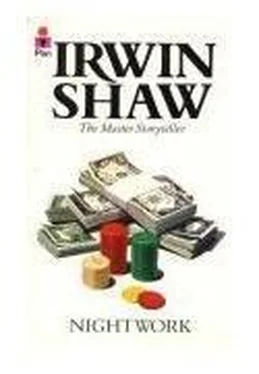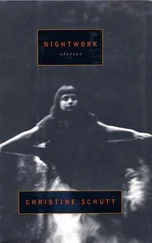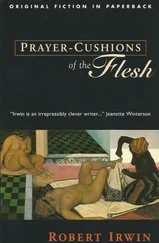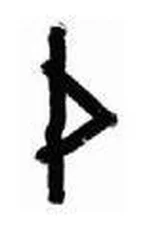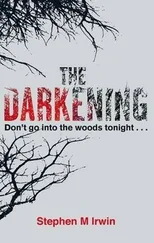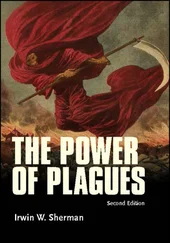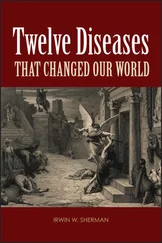“I didn’t think anything. I didn’t know what you were doing.”
“You know now, don’t you?”
“Yes.”
“I wasn’t impotent then, was I?”
“How the hell would I know?”
“Take your brother’s word for it. Glad you came back to Scranton, Doug?”
“Listen to me. Hank.” I grabbed both his hands and pressed them hard. “Are you sober enough to understand what I’m saying?”
“Approximately, kid, approximately.” Henry chuckled, then frowned. “Give me back my bands.”
I let go of his hands. I took out my wallet and counted out ten bills. “This is a thousand dollars. Hank,” I said. I leaned over and stuffed it into my brother’s breast pocket. “Don’t forget where I put it.”
Henry let out his breath noisily. He fumbled at his pocket, took out the bills, smoothed them out on the table. “Other people’s money,” he said. He sounded dead sober.
I nodded. “There’s more where that came from. Now, I’m going away tomorrow. Out of the country. I won’t tell you where, but from time to time you’ll hear from me, and if you need more there’ll be more. Do you understand that?”
Henry slowly folded the bills and put them in his wallet. Then the tears started, silently rolling down the pallid cheek out from under the glasses.
“For Christ’s sake, Hank, don’t cry,” I pleaded.
“You’re in trouble,” Henry said.
“Maybe,” I said. “Anyway, I have to keep on the move. If anybody ever comes to you and asks you if you know where I am, you don’t know anything. You got that?”
“I got it.” Henry nodded. “Let me ask you a question, Doug.” He was sober now, sobered by money. “Is it worth it? Whatever you’re doing?”
“I don’t know yet. I’ll let you know when I find out. I think we can skip coffee, can’t we?”
“I don’t need any coffee. I can get coffee in my happy home from my happy wife,”
We stood up and I helped Henry put on his coat. We walked out together, after I had paid the waiter. Henry walked in a straight line, a bent, oldish figure, then stopped for a moment, as I was pushing at the door. “Just before he died,” Henry said, “do you know what Pa said to me? He said, of all his sons he loved you best. He said you were the purest.” His voice sounded petulant, almost childish. “Now why would a man on his deathbed want to tell his oldest son something like that?” He started walking again, and I opened the door for us, thinking, I am an opener of doors.
It was cold outside, the night wind gusting. Henry shivered a little, settling deeply into his coat. “Beautiful old Scranton, where I live and die,” he said.
I kissed him on the cheek, hugging him, feeling the wetness of his tears. Then I put him in a cab. But before the cabby could start off, Henry tapped him on the shoulder to stop him and rolled down the window on my side. “Hey, Doug,” he said. “I just noticed; I knew something was peculiar about you all evening and I couldn’t put my finger on it. You don’t stutter anymore.”
“No,” I said.
“How’d it happen?”
“I went to a speech doctor,” I said. It was as good an explanation as any.
“Why, that’s great, that’s wonderful. You must be a happy man.”
“Yep,” I said. “I’m a happy man. Get a good night’s sleep, Hank.”
He rolled up the window and the cab started away. I watched its tail-lights go down the street, disappear around a corner, carrying away the brother of whom our mother had said that of all her children he was the one who was born ta be rich and successful.
I took a deep breath of the icy night air, shivered, remembered the warm beds of Washington. Then I went in and took the elevator to my room and watched the television for hours. Many objects were advertised that I would never buy.
I slept badly that night, tantalized by fleeting visions of women and funerals.
The ringing of the telephone on the bedside table put a welcome stop to my dreams. I looked at my watch. It was only seven-thirty. “Doug…” It was Henry on the phone. It couldn’t have been anyone else. Nobody else in the whole world knew where I was. “Doug … I have to see you.”
I sighed. I felt as though we had exhausted each other the night before, that there was no need to see each other for another five years. “Where are you?” I asked.
“Downstairs. In the lobby. Have you had your breakfast?”
“No.”
“I’ll wait for you in the dining room.” He hung up before I could say yes or no.
* * *
He was drinking a cup of black coffee, alone in the neon-lit dining room. It was still dark outside. Henry had always been an early riser. It was another one of his virtues that my parents had praised. “I’m sorry if I woke you,” he said, as I sat down across from him. “I wanted to make sure I got hold of you before you left town.”
“That’s okay.” Half-remembering my dreams, I said, “I wasn’t particularly enjoying my sleep.”
The waitress came over to us and I ordered breakfast. Henry asked for a second cup of coffee.
“Listen, Doug,” he said, when the waitress had gone, “last night, you said something. When you … when you gave me all that money. Don’t think that I’m not grateful…”
I waved my hand impatiently. “Forget it,” I said. “Let’s not talk about it.”
“You said … and I can’t forget it… you said, if I needed it, there’s more where that came from.”
“That’s what I said.”
“Did you mean it?”
“I wouldn’t have said it if I didn’t mean it.”
“Did you mean as much as twenty-five thousand?” He flushed, as though the effort of getting the question out had been enormous.
I hesitated only a moment. “Yes,” I said. “I meant that. If you need it.”
“Don’t you want me to tell you what I’m going to do with it?”
“Only if you want to tell me,” I said. I was sorry I hadn’t left town last night.
“I want to tell you. It’s not only for me, it’s for both of us. It’s a…” he began, then stopped, as the waitress came over with my juice and coffee and toast. He watched her tensely as she poured him a second cup. When she’d finished and moved off, he gulped a steaming mouthful. I saw that he was sweating.
“Here it is,” he said. “There’s an account I handle in the office. A small new company. A couple of very smart young guys. Two kids out of MIT. They’re on to something. Something that can be very big. Big, big. They’ve got a patent pending for a new system of miniaturization. For all sorts of electronic systems. But they’re just about busted. They need about twenty-five thousand to tide them over. They’ve been to the banks and they’ve been refused. I know their situation because I know their books inside out… And I’ve talked to them about it. I can buy in. With a little pushing, for twenty-five thousand, I could have a third of the stock. And I could become an officer of the company, treasurer, to protect our interests. Once they go into production, they’d go on the board on Amex…”
“What’s Amex?” I asked.
“American Exchange.” He looked at me oddly. “Where the hell have you been all these years?”
“No place,” I said.
“There’s no limit to how high the stock would go. I’d take a third of the thirty-three percent and you’d get two-thirds. Does that seem unfair to you?” he asked anxiously.
“No.” I had already kissed the twenty-five thousand goodbye. None of it was real to me anyway. Stacks of paper in a vault.
“You’re noble, Doug, noble.” Henry’s voice was quivering with emotion.
“Oh, cut it out. Hank,” I said sharply. I didn’t feel noble. “Can you be in New York Wednesday?”
Читать дальше
